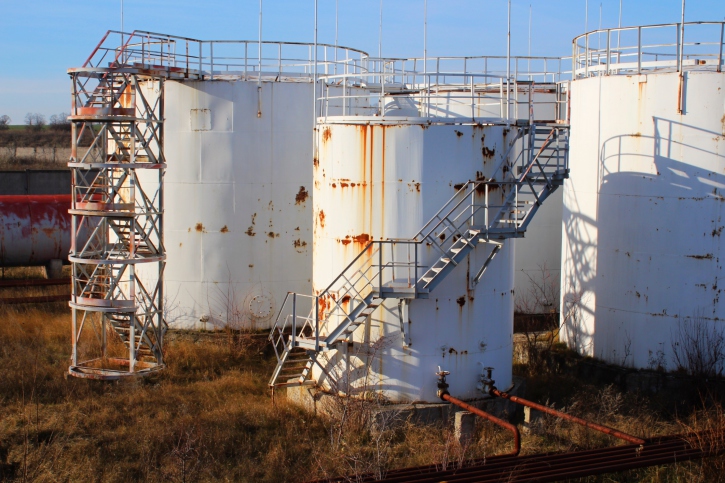
West Virginia chemical spill raises question of whether better regulation is needed.
To strengthen or not to strengthen chemical regulation? That is the question on the minds of policymakers, advocates, and even ordinary citizens after the chemical spill in West Virginia.
Last month, seventy-five thousand gallons of a chemical used to clean coal poured into the Elk River, leaving three-hundred thousand West Virginians without drinkable tap water. The incident leaves many wondering how such a catastrophe could happen, with some observers suggesting that the cause was inadequate regulations.
One complaint focuses on West Virginia’s refusal to incorporate recommendations that the U.S. Chemical Safety Board (CSB) provided after two earlier chemical plant accidents in the state. The CSB reportedly visited West Virginia in 2008 after an explosion at a chemical plant and then again in 2010 after a series of accidents in another chemical plant.
After the CSB’s 2008 investigation, the agency recommended that the Environmental Protection Agency (EPA) conduct a risk-management program inspection. Further, the CSB advised the West Virginia Department of Environmental Protection (WVDEP) and the Kanawha-Charleston Health Department to create a hazardous chemical release program that would aim to prevent accidents as well as speed up recovery after an accident. The agency also suggested that the Kanawha-Putnam Emergency Planning Committee create a plan to deal with the emergency response to a chemical spill. CSB echoed these recommendations with similar ones it made after the 2010 accidents.
However, after receiving this advice, state regulators in West Virginia reportedly did little or nothing to make these recommendations a reality. According to a report from National Public Radio, industry officials apparently argued that the EPA and the Occupational Safety and Health Administration (OSHA) already regulate the chemical industry adequately.
During a recent hearing at the U.S. Senate Committee on Environment and Public Works, Randy C. Huffman, the Cabinet Secretary of the WVDEP, called attention to gaps in the federal regulation of above-ground storage tanks. However, he also pointed out that the West Virginia legislature is currently considering a bill to fill in these gaps. This bill would require the registration and annual inspection of certain tanks, the development of plans to prevent and respond to chemical spills, and the construction of systems to contain spills.
At the same hearing, Erik D. Olson, the Senior Strategic Director for Health and Food at the Natural Resources Defense Council, pointed out that there are a variety of weaknesses in regulations created under federal environmental laws. For example, under the Clean Water Act, the EPA has established spill prevention procedures for oil, but the agency has not created such measures for many hazardous substances. Additionally, Olson claimed that the data sheets for the chemicals spilled in West Virginia, filed to comply with the Toxic Substances Control Act (TSCA), are “rife with ‘no data available’ statements” on the chemicals’ toxic effects.
On the other hand, at the Senate hearing, R. Peter Weaver, the Vice President of Government Affairs for the International Liquid Terminals Association (ILTA), stated that the current regulation of chemical storage is “fairly comprehensive” and “rigorously enforced.” Weaver emphasized that there are many federal regulations, state laws, and industry best practices that ensure the integrity of chemical facilities. Also, Weaver revealed that Freedom Industries—the apparent owner of the chemical storage tanks that were the source of the West Virginia chemical spill—is not a member of the ILTA and may not have been subject to the rigorous regulation applicable to ILTA members.
Some observers have also complained about the EPA’s response when the agency discovered the leak. Freedom Industries reportedly had a permit that controlled the discharge from the company’s facility. However, according to a report that aired on National Public Radio, when the EPA discovered the chemical leak, the agency did not immediately report the spill to the state, thereby potentially delaying containment efforts that might have minimized the size of the spill.
However, accounts differ about what, when, and to whom the agency reported the spill. According to the WVDEP’s Huffman, a Freedom Industries employee reported the spill to the WVDEP. Then, the agency closed down the site, directing the chemical company to “take all necessary measures to contain, recover, and remediate” the chemicals and to empty certain chemical tanks.
In the wake of criticisms about the adequacy of existing rules, calls have grown to strengthen chemical regulation. Recently, a poll by YouGov and Huffington Post showed that over half of Americans would like the government to increase regulations for companies using, manufacturing, and storing chemicals.
Rafael Moure-Eraso, Chair of the CSB, explained in the New York Times that CSB has called and continues to call for “inherently safer technology.” Additionally, Moure-Eraso suggested that there is a need for “comprehensive regulatory reform,” and he said that the EPA should use the agency’s Clean Air Act authority to make chemical companies improve the safety of their operations. And, lawmakers are reportedly seeking to satisfy the desire for more stringent regulations that will require “early notification of a spill, greater setbacks for water supplies for chemicals, and better alarm systems.”
The CSB is currently investigating the chemical spill in Charleston, West Virginia.



